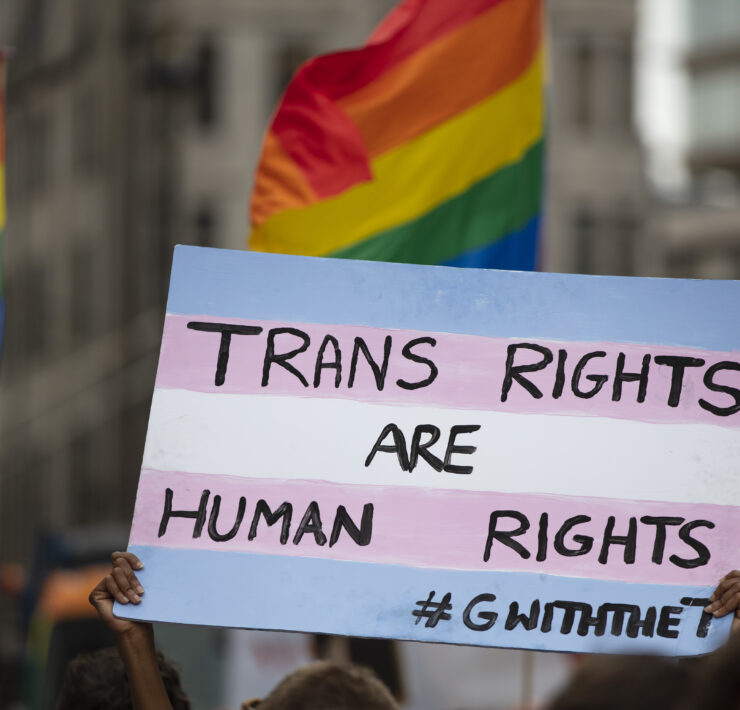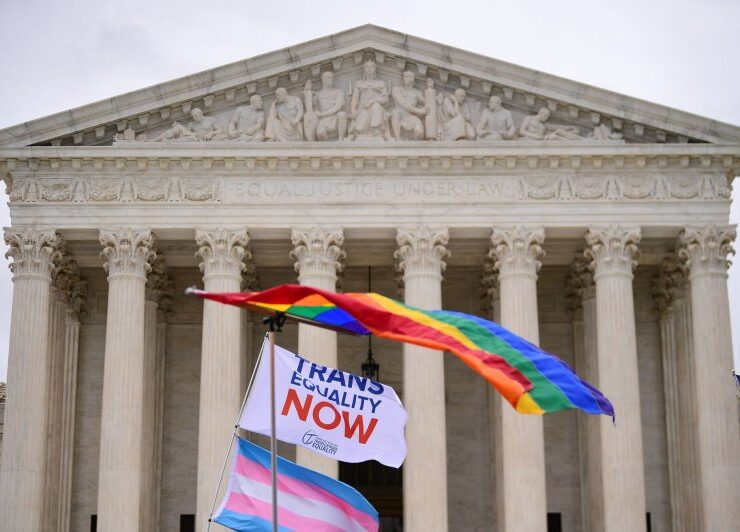What’s in a name? How Colorado’s LGBT movers and shakers refer to their significant-others

Matthew Pizzuti Out Front Colorado's former managing editor.

Widespread recognition is new to LGBT couples, so there are no traditional customs when it comes what to publicly call the ones they love.
Is she your “spouse?” Is he your “partner?” Do you introduce your mate as a “girlfriend?” A “roommate?” Without consensus on what word to use, it’s up to personal preference.
State Senator Pat Steadman calls his significant-other his “partner.” But the first time I met State Representative Mark Ferrandino, he introduced me to Greg Wertsch as “my husband, Greg.”
Sex columnist and famous gay activist Dan Savage has publicly referred to his guy, Terry Miller, as “my boyfriend” even when the two had been together well over a decade and were raising a son.
So what’s the difference? I set out to find out if Colorado’s well-known LGBT folks had any reasoning behind their terms.
In this case, Ferrandino said he uses husband and partner interchangeably.
Steadman said Dave Misner is his partner because of their legal status.
“We’re not married. So he’s not a husband – unlike Mr. and Mr. Ferrandino,” Steadman said. “‘Partner’ is becoming pretty accepted as the preferred term.”
Robin Kniech, Denver’s first lesbian city council member – just sworn in this week – said the same about Julia Auckland, who she’s raising a child with.
“Julia is my partner. We’ve never had a marriage ceremony, so spouse or wife wouldn’t make sense.”
Gay software engineer and philanthropist Tim Gill, on the other hand, has legally tied the knot with Scott Miller.
“I call Scott my husband since we got married in Massachusetts two years ago,” Gill said. “Before that it was boyfriend or partner.”
Gill also recounted some history about terms gay people have used.
“I resisted ‘partner’ because I had a business partner for years and that was his title,” he said. “‘Lover’ was in vogue in the early 70s and ‘Life Partner’ in the 80s, but that was just odd.”

Steadman agreed with Gill’s distaste for the once-popular phrase.
“I hate the term ‘life partner.’ Sounds like someone who’s main connection to you is being a beneficiary on an insurance policy,” he said.
For the record, I can’t recall ever meeting someone who still uses life partner to describe a mate. I guess I’m too young.
State Senator Lucía Guzmán isn’t picky about the language for her relationship; “I generally use ‘partner’ and sometimes ‘wife,'” she said.
Governor Hickenlooper’s policy director James Van Leeuwen was similarly laid-back about his terminology.
“I always used to use ‘partner,’ but more recently have been using ‘husband.’ The two terms a synonymous for me.”
For single gay men who are looking for someone special, the label for that unidentified, hopefully-soon-to-be-filled space in their lives seems to be the one. That or the word “someone” distinguishes a future life-long mate from current and former relationships that are less serious.
They’ll say, “I hope to someday find someone I spend my whole life with.” It takes longer to say that than just “I hope to have a husband,” or “I want to get married,” the way a straight person would say it.
Perhaps gay men – who seem increasingly interested in proving they’re masculine nowadays – think saying they wish for a “husband” or dream about a wedding makes them seem feminine. Of course, when they actually fall head-over-heels in love, their reluctance goes out the window.
Do the different terms represent something a little bit different? Or are they just words?
Personally, I find the term “husband” too traditional for me – but my boyfriend Nick hates the term “partner,” so for now boyfriend works just fine.
In good fun, we settled for someday calling each other a “sidekick.”
Some lesbian and gay people say “partner” sounds too academic or technical. It evokes the term “domestic partner,” a legal status available to same-sex couples in some states.
Does that mean in states where civil unions are legal, your mate becomes a “civil unit?”
Still, partner is catching on in unexpected circles. In college at CU Boulder, I had a young sociology instructor who frequently talked about his “partner.” He also talked about a baby soon-to-arrive to his household, so everyone in the class assumed he and another man were in the process of adopting.
He suddenly went on leave for a week and returned saying his “partner just gave birth to a girl, so she’s pretty exhausted.”
Apparently sociologists – or maybe just liberal Boulderites – don’t like to distinguish between heterosexual and same-sex relationships with different terms.
That’s how fluidly some straight people refer to gay and straight coupling. Others are uncomfortable when they talk about gay relationships – ironically, that can be especially true for the straight people closest to us: our families.
When I first came out, my parents or grandparents would ask if I had “a friend,” hesitating as if the word made them nervous. It took some time for them to get used saying “boyfriend” for me.
But in our survey of well-known LGBT people in Colorado, it seems that the terms used to introduce that-special-someone are less important than, simply, respect for what the close relationship means. There was an acceptance of a variety of options that couples can choose.
Steadman said, “Lover, boyfriend, partner, squeeze, sidekick, husband, significant other – call it what you will. I think everyone is entitled to invent their own terms for their relationships and call it whatever they want.”
What's Your Reaction?
Matthew Pizzuti Out Front Colorado's former managing editor.










